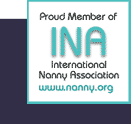Bc Averaging Agreement
March 3, 2022 | in Uncategorized
BC Averaging Agreement: A Detailed Overview
British Columbia, Canada is known for its beautiful landscapes, impressive mountains, and a thriving economy. It is also home to various industries, including the forestry industry. Forestry is an essential component of the British Columbia economy, and the province has extensive agreements and regulations to govern the sector. One such regulation is the BC Averaging Agreement.
The BC Averaging Agreement, formally known as the British Columbia Averaging Agreement for Forest Practices, was introduced in 1996 as part of British Columbia`s Forest Practices Code. The code was developed to ensure that forestry operations in the province were sustainable and responsible.
The BC Averaging Agreement is a provision within the code that allows forestry companies to average the harvesting of timber within larger management areas over a more extended period. In simpler terms, it permits companies to harvest more timber than the annual allowable cut (AAC) in one year and then reduce the harvest in subsequent years to compensate for the over-cutting.
The idea behind the BC Averaging Agreement is to provide flexibility to forestry companies while at the same time ensuring that the AAC is not exceeded over the long term. This regulation is a critical component of responsible forest management in the province, as it protects the sustainability of the forest resource while allowing for the continued economic benefit of forestry operations.
Forestry companies can apply for an averaging agreement through the British Columbia Ministry of Forests, Lands, Natural Resource Operations, and Rural Development. The application process involves an evaluation of the proposed plan, including the expected harvest and the overall impact of the agreement on the forest resource.
The BC Averaging Agreement is not a license to over-cut. The agreement has strict rules and guidelines that companies must follow to ensure that the AAC is not exceeded over time. Forestry companies must track their harvesting and report annually on their progress towards meeting the AAC. Failure to comply with the agreement can result in penalties and even the loss of a company`s license to harvest timber.
In conclusion, the BC Averaging Agreement is an essential part of forestry management in British Columbia. It provides a necessary balance between economic benefits and environmental responsibility. The agreement allows for flexibility while ensuring that the AAC is not exceeded over time. It is a testament to the province`s commitment to responsible forest management and the sustainability of its forest resource.
← General Partnership Agreement Traduccion | Forward Rate Agreement Examples →Comments are closed.
DIY & Sign up Online
We have partnered with eNannySource to help you search for the perfect nanny in your area in addition to our other services.
Enter your zipcode to get started:
Nanny Articles
- Pillow Agreement Definition
- Retroactive Caregiver Agreement
- What Is Condition and Warranty in Contract Law
- Shared Ownership Contract Template
- How to Start Labour Contract Business
- Prenuptial Agreement in Bengali
- State of Nj Installment Agreement
- When Does an Agreement Become Unconditional
- Illinois Contract Law Impossibility of Performance
- Service Agreement Francais
National Nannies History
- September 2023
- August 2023
- July 2023
- June 2023
- May 2023
- April 2023
- March 2023
- February 2023
- January 2023
- December 2022
- November 2022
- October 2022
- September 2022
- August 2022
- July 2022
- June 2022
- May 2022
- April 2022
- March 2022
- February 2022
- January 2022
- December 2021
- November 2021
- October 2021
- February 2019
- December 2018
- July 2018
- June 2018
- April 2018


